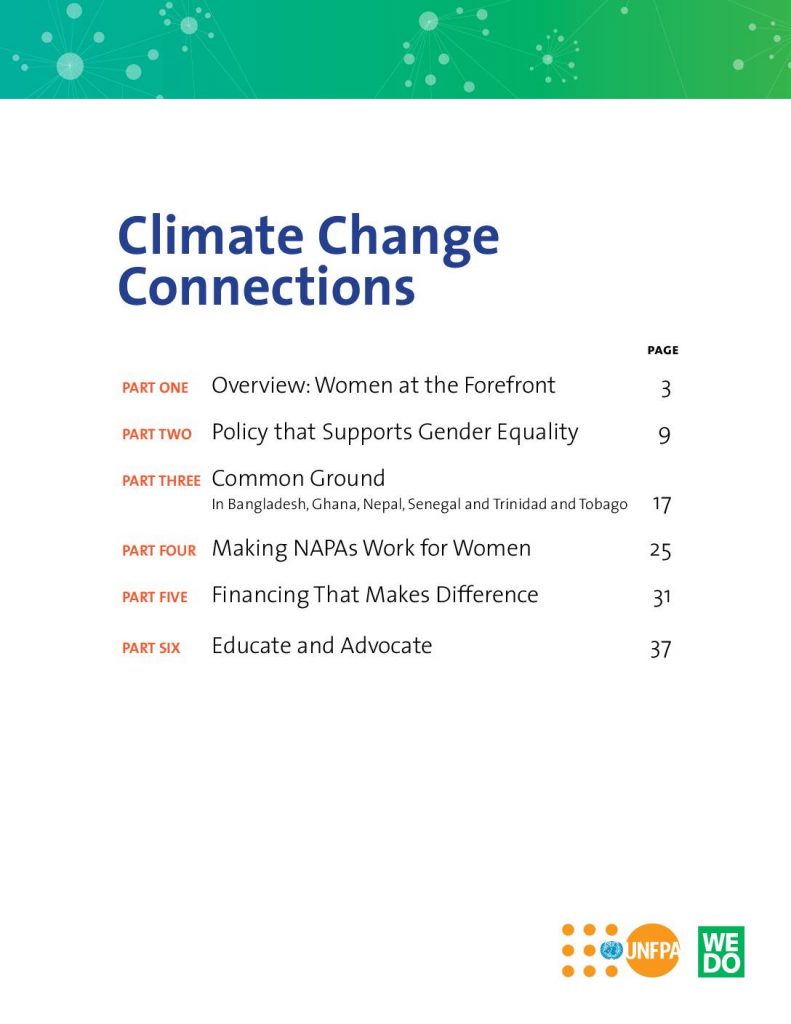Those with the fewest resources will be most susceptible to its negative effects—particularly women, the majority of the world’s poor. In many parts of the world, women still face unequal access to decision-making, formal financial systems, land ownership, reproductive health care, and education and information, undermining their well- being in addition to that of their families and communities.
At the same time, women’s vulnerability can obscure the fact that they are an untapped resource in efforts to cope with climate change and reduce the emissions that cause it. As innovators, organizers, leaders, educators and caregivers, women are uniquely positioned to help curb the harmful consequences of a changing climate. Incorporating a gender perspective into climate change policies, projects and funds is crucial in ensuring that women contribute to and benefit from equitable climate solutions.

Follow us on: